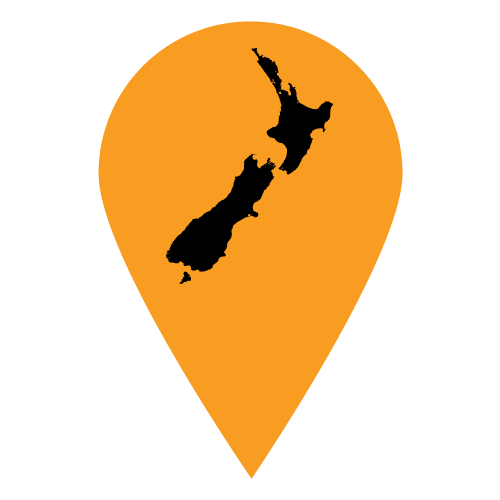The long read: Who's afraid of the big bad water meter?
An AI-generated image of an anthropomorphic water meter walking menacingly down the street.
“Because we don’t have water meters we don’t have good data on how much water we are losing through leaks.” These were the words of Napier’s Mayor Kirsten Wise as Hawke’s Bay, yet again faces another summer of water restrictions and shortages. Few things frustrate me more than regions which regularly face water shortages but refuse to put in place one of the most simple and effective solutions - water meters.
It’s a familiar story around the country. In Wellington, the water metering can continues to be kicked down the river by councils who are scared of the political consequences, all while people continue to waste water in the middle of an ongoing water crisis.
Nevermind that water metering helps councils more quickly identify leaks in the network.
The logic that councils should try to both reduce usage through implementing one of the most objectively effective tools while also trying to fix leaks - which water meters make it easier to identify in the first place - seems lost on many elected members and many residents.
So why are councils dithering on water meters?
Politics.
Specifically, councillors want to be re-elected.
I was a councillor on the Kāpiti Coast District Council from 2019 to 2022. Our district is both the poster child for how effective water meters are and a warning of the political cost that comes with implementing them.
As one of the lower North Island’s fastest growing districts, back in the early 2000s, Kāpiti faced the prospect of ever worsening water shortages and ongoing restrictions throughout summer and autumn. Despite being situated on the west coast and benefitting from healthy amounts of rain for most of the year, long dry summers and a lack of water storage, combined with a rapidly growing urban population, meant Kāpiti faced water restrictions every summer. People using bores to try to get around the restrictions were draining our limited aquifers dry and climate change was driving salt water intrusion through higher water tables.
To address this, many advocated for a water storage dam on one of the tributaries of the Waikanae River. Given the prohibitive cost of such a venture (estimated at $35 million in 2012, but in reality likely to be much more as the Waimea Dam cost blowouts have demonstrated), and huge risks about whether such a project could be consented under the then Resource Management Act regime, council only ever got as far as purchasing the land for the dam. But the reality was - and still is - that any investment in such a venture was decades away. A quicker solution was needed to get residents to stop using water as an infinite resource while also increasing supply during dry years.
To achieve this, the council ultimately implemented two initiatives. On the supply side the initially controversial, but now award winning, Waikanae River Recharge Scheme was developed. Tapping into the aquifer underlying the upper reaches of the Waikanae River, the recharge scheme allows the council to take water from the aquifer and “recharge” the river to top it up to minimum flow levels during dry spells and in doing so offset any additional water they need to take to ensure supply is maintained.
The other initiative was - you guessed it - water meters. The idea was that by increasing dry year water security and reducing consumption, Kapiti would buy itself the time it needed to fully flesh out and ideally get central government support for the water storage dam project.
However, if the recharge scheme was controversial, water meters were politically toxic. Then Mayor Jenny Rowan, the leading proponent of water meters, won the debate, though it was a significant contributor to ending her political career, which was a great shame for the district.
Rowan’s primary opponent in the 2013 mayoral election, Councillor Ross Church, had vowed to not use water meters for volumetric charging and only for identifying leaks - which somewhat defeats half the purpose of metering. Church won the 2013 mayoral election.
However, the story wasn’t over. The council ended up opting for an approximately half/half charging approach for water. Half being fixed charges, and half being volumetric charges. The exact percentages get tinkered with periodically to ensure that the council’s “water account” stays balanced, but it was a pragmatic compromise.
Unfortunately it wasn’t enough to save Church and in 2016 he lost the mayoralty to then Councillor K Gurunathan. The use of water meters wasn’t the only issue at play, but it was a significant one.
Despite the political cost, water meters have been a resounding success in Kāpiti. As per the linked stories above:
Water meters have reduced usage by around 26 percent versus pre-metering
They contributed to identifying 443 leaks following their installation and a 90 percent drop in water lost through leaks
75 percent of people paid less for water via water metering than they did through the previous fixed charge model
The reductions in water loss and usage meant water meters paid for themselves
The reductions in water loss and usage have also meant that the Waikanae River Recharge Scheme has barely had to be used and has bought another 30 to 50 years before the proposed Maungakotukutuku Valley Dam is needed.
I’ve talked to elected members around the country about water metering. Privately they nearly all agree that water metering is a good idea and acknowledge that the claimed downsides of it (increased charges, risk of privatisation, it being ineffective expenditure) can either be mitigated or never eventuate. Publicly they avoid being seen to be supportive about water meters or try to hand off responsibility for it as something that central government should mandate.
The lack of political courage and bold leadership is profoundly disappointing. But from a political perspective it’s also understandable. It doesn’t matter how objectively effective water meters have proven to be, councillors are politicians and they can see very plainly the career ending cost that vocal proponents of water metering have paid despite being ultimately proven right.
Pundits often try to claim that good policy makes for good politics. But it’s really not the case and water meters are a good example of why. Perfectly understandable fears around huge metering bills for households, the risk of corporatisation or privatisation of water services, leaning on resentment to having to change deeply ingrained water usage habits and perceived entitlements, or incorrect claims around metering not being cost effective are easy for shameless politicians to ruthlessly exploit. It doesn’t matter if these are either demonstrably wrong or can be easily mitigated. Communities have these feelings and some politicians are either going to genuinely share those concerns and channel them, or they’ll cynically leverage them in the hopes of boosting their own electoral chances.
Even Labour during their now defunct Three Waters reform, and the Coalition now with their Local Water Done Well reform, have each tried to kick the water metering issue for touch and leave it as something for their proposed new water entities to deal with rather than be explicitly linked to an issue that attracts such as visceral reaction for voters.
Despite these attempts to hand off the issue as a hospital pass to someone else, the new water services council-controlled organisations under Local Water Done Well might not be far enough removed from their shareholding councils to be immune from political pressure around preventing water metering. It’s very easy to see a prominent mayor or particularly agitated council leveraging the issue of water metering to either extract priority investment in their city or district from the new entities, or torpedo the water CCO from trying to pursue water meters.
Sadly, unless elected members start showing the courage of their convictions and demonstrate leadership by speaking up vocally in favour of water meters regardless of the political risks, it seems the circus around water meters is set to continue all while precious water - and if we’re frank public money - literally goes down the drain.





